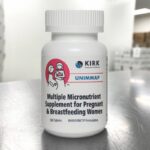By Folasade Akpan
The Federal Government says the Coordinated Wholesale Centres (CWCs) being established across Nigeria will help eliminate the circulation of fake, substandard and expired medicines.
Mr Bulama Yakubu, Head of Drug and Vaccine Development and Drug Distribution System at the Federal Ministry of Health and Social Welfare, made this known on Tuesday in Abuja.
He spoke at a meeting on the “Promoting Accreditation for Community Health Services (PACS)” project, themed “Strengthening Private Sector Participation in Nigeria’s Health Market: Insights and Learning from PACS Project on Addressing Substandard and Falsified Medicines.”
Yakubu said the CWCs would provide a centralised structure that ensured medicines were only sourced from certified manufacturers or importers, with built-in systems for quality control and regulatory oversight.
“With the CWCs, the sources of drugs will be known. Drugs will be moved from manufacturers to these centres, which will serve as the only point of wholesale distribution,” he said.
He added that the centres would be equipped with NAFDAC and Pharmacy Council of Nigeria (PCN) offices, quality assurance laboratories, and even police outposts to ensure security and compliance.
“When established nationwide, substandard and expired drugs will become a thing of the past,” Yakubu said.
He cited progress made in Anambra, Kano, Ogun, and Lagos States, noting that the open drug market in Kano had already been relocated to the new wholesale centre commissioned in February 2024.
He also said states such as Ebonyi, Imo, and Oyo had applied to establish their own CWCs.
Yakubu identified the proliferation of open drug markets, lack of stakeholder coordination, political interference, and poor leadership as key challenges affecting the drug distribution system in Nigeria.
He, however, said the implementation of the National Drug Distribution Guidelines (NDDGs) would ensure a well-structured, efficient, and quality-assured drug supply system across the country.
He said the guidelines also provided for the establishment of State Drug Distribution Centers (SDDCs) by state governments and Mega Drug Distribution Centres (MDDCs) by the private sector.
According to him, the goal is to ensure that all drugs circulating in the Nigerian market are efficacious, affordable, and of high quality.
Also speaking, Dr Omokhudu Idogho, Managing Director of the Society for Family Health (SFH), said the PACS project had shown that trained and accredited community pharmacists and Patent and Proprietary Medicine Vendors (PPMVs) could deliver high-quality services.
He said the project, which ran for almost three years, focused on enabling community-based health providers to source quality medicines, follow guidelines, and feed data into the national health system.
“PACS is more than a project, it is proof of concept.
“It has shown that when supply chains are digitised, provider accreditation is strengthened and procurement aligns with verified sources, the result is a significant reduction in the prevalence of substandard and falsified medicines.”
He called for national adoption of these insights, adding that the time had come to institutionalise the gains made through PACS by integrating them into national policy frameworks.
Mrs Iyadunni Olubode, Country Director for MSD for Mothers in Nigeria and Kenya, said the organisation’s interest in the PACS project stemmed from its goal of improving access to family planning commodities, particularly in rural and peri-urban areas.
She said community pharmacists and PPMVs were critical in helping women access reproductive health services, and improving the quality of drugs they dispensed could reduce maternal mortality by up to a third.
“One key finding from PACS is that when PPMVs source their commodities from transparent supply chains, there is a marked improvement in drug quality,” she said.
The Registrar of PCN, Mr Ibrahim Ahmed, represented by the Lagos Zonal Officer, Dr Taiwo Filusi, said the relocation of open drug markets and the establishment of drug management agencies were commendable steps.
He noted that although the pace of progress appeared slow, the council was focused on creating sustainable and lasting structures rather than temporary fixes.
The News Agency of Nigeria (NAN) reports that the PACS project is a two-year investment under the MSD for Mothers initiative.
It was implemented by a consortium led by Solina Centre for International Development and Research (SCIDaR) and SFH.
The project aimed to strengthen adherence to the PCN accreditation framework through three incentive mechanisms: access to finance, quality commodities, and branding.
Its overarching goal is to improve the quality and availability of family planning and primary healthcare services at the community level. (NAN)(www.nannews.ng)
Edited by Abiemwense Moru












